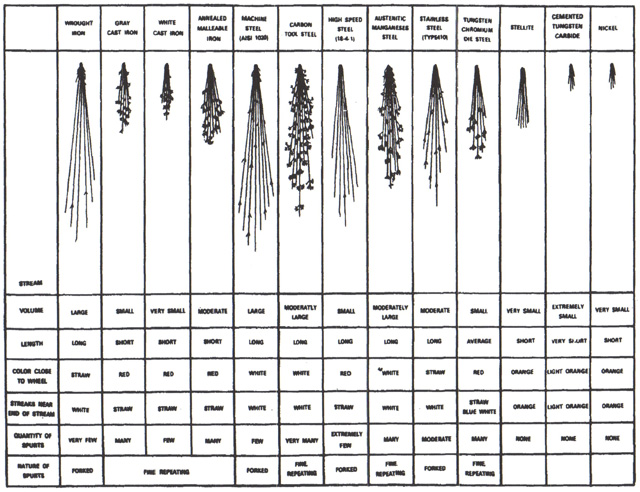Due to differences in chemical composition and structure, each metal and metal alloy releases a different kind of spark when held next to a grinder. Scrap metal recyclers, such as Gulf Coast Scrap Metal, tend to use this method as a way to identify metals. To learn more about scrap metal and carbide recycling with Gulf Coast, call us at 713-868-4111.
How Spark Testing Works
To do conduct a spark test properly, one needs a grinder; a bench grinder or a hand-held grinder will serve, as long as they are set up so that you do not need to hold it. It is easier to hold the scrap and the grinder so that you can have a controlled, smooth grind.
The type of metal is determined by the length, color, and shape of the spark stream. The most common colors for sparks are white, yellow, and orange. Some metals, like chromium and tungsten, tend to have sparks that are red next to the grinder wheel but that fade out into white. Alloys tend to meld colors; for example, the sparks of tungsten carbide are orange throughout.

Spark testing chart
Sparks are generally anywhere between 2 to 70 inches long. Cemented tungsten carbide — an alloy that is used for carbide recycling — has sparks that are about 3 inches long while low-carbon steel has spark streams that are upwards of 60 inches long.
The tips of the sparks are also a great indicator of what kind of metal scrap you are working with. When sparks form straight lines, the spark stream in said to be shafted. Sparks can also be broken and dashed. Most metals have sparks that end in streams, forks, sprigs, appendages, or a combination of a few of these.
Using the Test with Carbide Recycling
If the metal you are testing has a spark that is about 3 inches long, has small streams at the tips, and is an orange color throughout, you are probably working with tungsten carbide.
Gulf Coast Scrap Metal performs free alloy testing so that you can know for certain what scrap metal you have been collecting. Call 713-868-4111 for carbide recycling and stay tuned to our blog for more information about other metal testing methods!